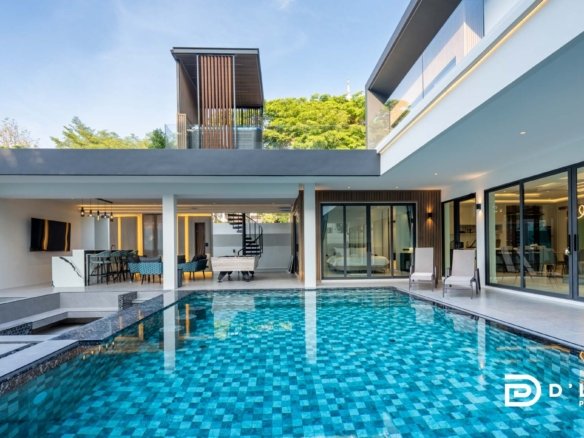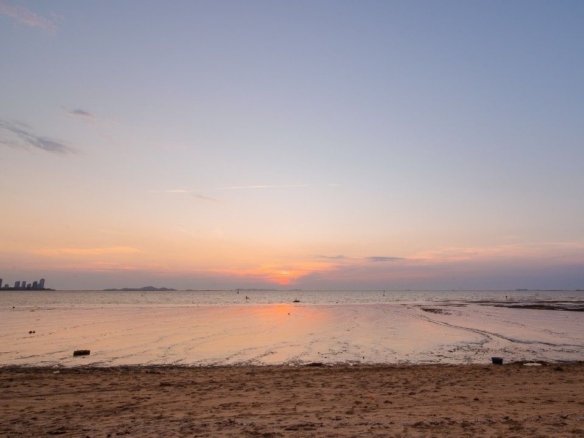Deciding to buy property in Pattaya is an exciting step, but navigating the ownership options as a foreigner can seem complex. In Thailand, the two primary legal structures for foreign property acquisition are freehold and leasehold. Understanding the fundamental differences between them is crucial to making an informed decision that aligns with your goals, be it for a holiday home, long-term residence, or investment.
This guide will break down Freehold and Leasehold, their pros and cons, and help you determine which option is the best fit for your Pattaya property dreams, with the latest insights as of mid-2025.
1. Freehold Ownership: Full Rights, Limited Scope for Foreigners
Freehold represents outright, permanent ownership of a property. When you own property freehold, your name is recorded on the title deed (Chanote), granting you full legal rights to the unit indefinitely. You can sell it, transfer it, or pass it on to your heirs without time limitations.
For Foreigners in Thailand, Freehold is Almost Exclusively for Condominiums.
Thai law generally prohibits direct foreign ownership of land. Therefore, if you’re a foreign national, freehold ownership in Thailand is predominantly limited to condominium units.
Advantages of Freehold for Foreigners (Condos):
- Outright Ownership: You own the specific condo unit and a proportionate share of the common areas and land the building stands on.
- Permanent & Indefinite: No expiry date. The property is yours indefinitely, offering ultimate long-term security.
- Inheritable: Can be freely passed down to your heirs.
- Higher Resale Value: Generally, freehold properties tend to retain their value better and are easier to resell, as many buyers prefer outright ownership.
- Easier Financing: Thai banks are more likely to offer mortgages on freehold condominium units to eligible foreigners (though foreign financing for Thai property can be challenging overall).
Disadvantages of Freehold for Foreigners (Condos):
- The 49% Foreign Quota: The Condominium Act dictates that foreign ownership in any given condo building cannot exceed 49% of the total floor area. If the quota is full, a foreign buyer cannot purchase a freehold unit in that building.
- Limited to Condos: If your dream is a standalone house with land or a private villa, freehold is not a direct option for you as a foreigner.
- Proof of Funds: You must typically demonstrate that the full purchase price was remitted from outside Thailand in foreign currency to register freehold ownership.
2. Leasehold Ownership: Right to Use, Not to Own Land
Leasehold grants you the right to possess and use a property (and often the land it sits on) for a fixed period. While you don’t own the land itself, you have significant control and usage rights for the duration of the lease.
Leasehold is the Primary Avenue for Foreigners to Control Landed Property (Houses, Villas).
For properties like houses or villas that come with land, leasehold is the most common and legal method for foreigners to secure long-term usage rights. The lease agreement is registered at the Land Department.
Advantages of Leasehold for Foreigners:
- Access to Landed Property: This is the key benefit. Leasehold allows foreigners to acquire rights to houses, villas, townhouses, and even bare land they can build on, which would otherwise be impossible under direct freehold.
- Generally Lower Initial Cost: Leasehold properties often have a lower upfront purchase price compared to a freehold condominium of comparable size/location, especially when structured correctly.
- Clarity of Use: A well-drafted lease clearly defines your rights and responsibilities for the duration.
- Ownership of Structure: While you lease the land, you can usually own the actual building (house or villa) on top of it via a Superficies agreement, giving you ownership of the physical structure.
Disadvantages of Leasehold for Foreigners:
- Finite Term (Max 30 Years): Thai law limits residential leases to a maximum of 30 years for a single term.
- CRUCIAL 2025 UPDATE: The “90-Year Lease” is Risky!
- Historically, it was common for leases to be structured with a 30-year initial term and two subsequent 30-year pre-agreed renewal options (totaling 90 years).
- However, a landmark Thai Supreme Court ruling (Case No. 4655/2566) on March 18, 2025, has significantly impacted this. The ruling effectively states that any pre-agreed or automatic renewal clauses beyond the initial 30-year term are legally invalid and unenforceable.
- Implication: This means that while your initial 30-year registered lease is secure, any promise of future renewals is not legally binding. At the end of the 30 years, you would need to genuinely re-negotiate and agree to a new lease with the landowner, who is under no legal obligation to grant it. This introduces significant uncertainty regarding long-term tenure and potential future costs.
- Depreciating Value: As the lease term approaches its end, the property’s value typically depreciates, making resale more challenging unless a new long-term lease can be secured.
- Limited Control: While you have strong usage rights, you don’t own the underlying land, meaning modifications or major changes might require lessor consent.
- Inheritance Complexity: While leasehold rights can be inherited, the remaining term is what is passed on, and heirs inherit the same uncertainties regarding renewal.
- Financing Challenges: Obtaining a mortgage for a leasehold property, especially as the term shortens, can be more difficult with Thai banks.
3. Which Option is Right for You? Key Considerations
Choosing between freehold and leasehold in Pattaya depends heavily on your specific circumstances and goals:
- 1. Property Type:
- Condo: If you primarily want a condominium unit, freehold is generally the most secure and straightforward option for foreigners (provided the foreign quota is available).
- House/Villa/Land: If your heart is set on a landed property, a 30-year leasehold is currently the primary legal avenue for foreigners to control such assets.
- 2. Budget & Upfront Cost:
- Leasehold properties (especially landed ones) can sometimes have a lower initial purchase price than comparable freehold options, making them more accessible.
- 3. Long-Term Plans & Duration of Stay:
- Forever Home/Long-Term Investment (Condo): Freehold condo is ideal for permanent residence or a long-term, inheritable asset.
- Definite Period (Landed Property/Condo): If you plan to use the property for a clear 5-20 year period, a 30-year leasehold might suffice, especially if you plan to sell before the end of the term.
- Uncertainty with Leasehold: Be very aware of the 30-year limitation for leaseholds and the recent Supreme Court ruling if your plans extend beyond that initial period.
- 4. Investment Strategy:
- Rental Income Focus: Both can generate rental income. Leasehold villas often have good rental potential. Freehold condos offer simpler long-term appreciation due to indefinite ownership.
- Capital Appreciation: Freehold generally offers stronger long-term capital appreciation due to full ownership.
- 5. Risk Tolerance:
- Freehold condo ownership carries fewer legal complexities and risks for foreigners.
- Leasehold, particularly for landed property, now carries increased risk regarding long-term tenure stability due to the unenforceability of pre-agreed renewals.
- 6. Inheritance:
- Freehold condos are easily inheritable. Leasehold rights are inheritable, but only for the remaining term, and renewals for heirs are not guaranteed.
Conclusion: Seek Expert Legal Advice
The choice between freehold and leasehold in Pattaya is significant and impacts your long-term security and investment. While freehold condominiums offer direct, permanent ownership, leasehold provides access to landed properties, albeit with the crucial understanding of the 30-year maximum term and the implications of the latest Supreme Court ruling on renewals.
Before making any commitment, it is absolutely essential to consult with an independent, reputable Thai property lawyer. They can conduct thorough due diligence, explain the intricacies of each ownership type in your specific situation, and draft or review all contracts to safeguard your interests.
Ready to explore property options in Pattaya? Contact www.Realestate-Pattaya.com today. Our team can connect you with trusted legal professionals and guide you through the available freehold and leasehold properties that match your vision.




Join The Discussion